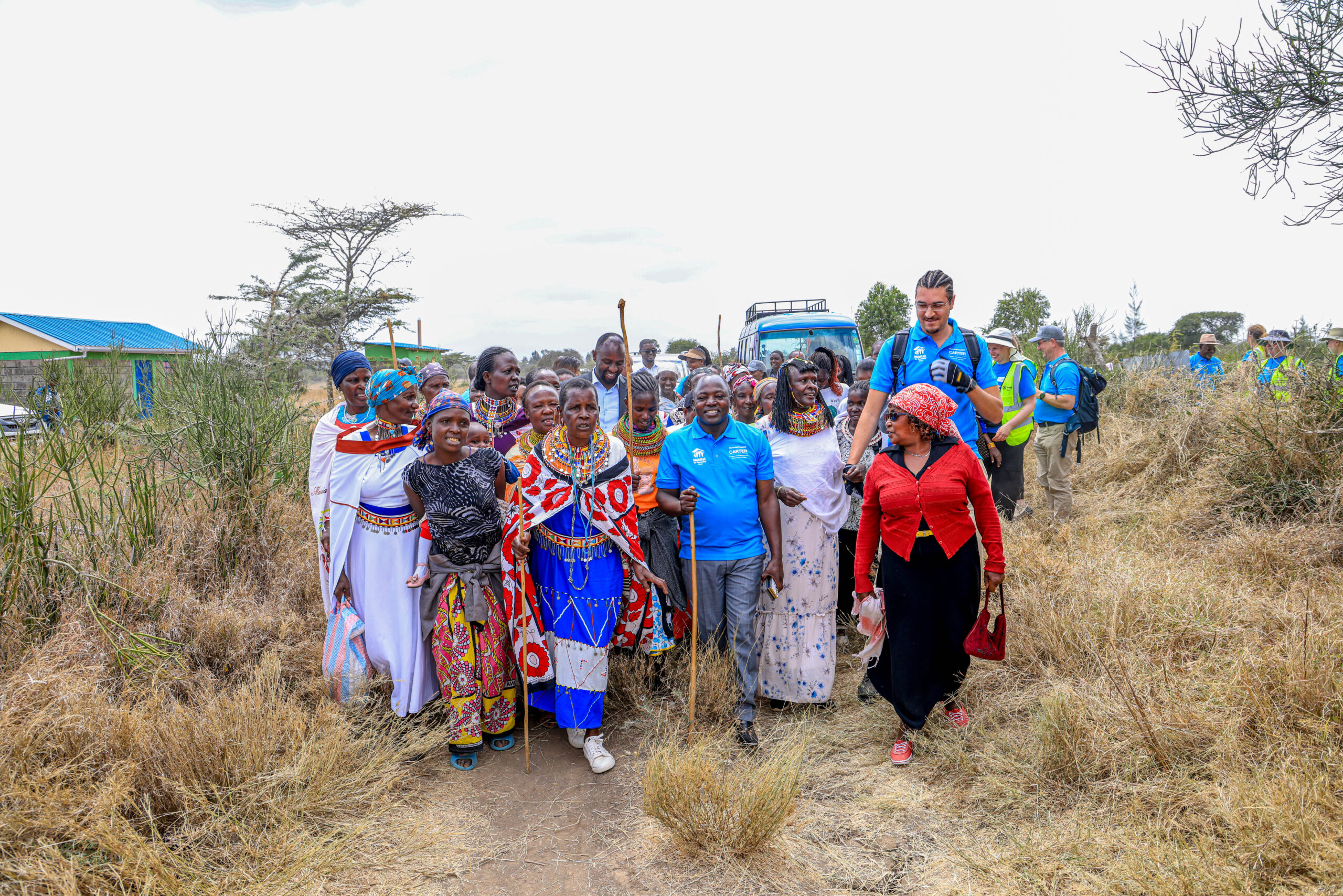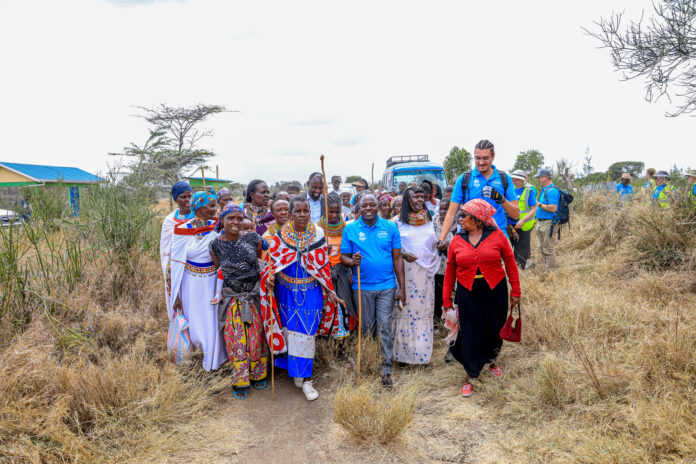|
Getting your Trinity Audio player ready...
|
By Lenah Bosibori
Laikipia, Kenya – On a bright Monday morning, the residents of Ruai village in Laikipia County gathered in anticipation and celebration. The scorching sun did not scare them as they awaited officials from the County Government and Habitat for Humanity to break ground on a new home for Rebecca Nashushu.
For Nashushu, a mother of seven, the day took an unexpected yet joyous turn when Laikipia Governor Joshua Irungu made a surprise visit, highlighting the county’s commitment to providing dignified housing for its most vulnerable residents.
“I feel immense happiness in my heart,” Nashushu said, her face smiling with excitement. “I used to live on this very spot, but when the heavy rains came in May 2024, my home flooded. Water seeped in, forcing me to build a temporary mud house. Now, I share the small space with my seven children, and it has been a struggle.”
A Government’s Commitment to Shelter
Governor Irungu, accompanied by Habitat for Humanity officials and other stakeholders, echoed the government’s pledge to improve housing conditions for Laikipia residents.
“We want to give our people a place they can truly call home,” stated Irungu “Due to geographical and economic challenges, many live in deplorable conditions. Nearly 20-30% of Laikipia’s population lacks decent housing.
Further Irungu added that through the county’s partnership with Habitat for Humanity, they have been able to support the housing programme by providing building materials and land for the vulnerable.
The project is part of efforts to commemorate Jim Carter Day, a global initiative championing sustainable housing solutions for vulnerable communities.

According to Habitat for Humanity, 120 homes and latrines have been constructed for vulnerable families across different Counties in Kenya.
Building a Future of Adequate Housing
Margaret Mengo, National Director of Habitat for Humanity Kenya, in her remarks, highlighted the organization’s mission to improve housing conditions across the country.
“A home is more than just shelter, it is a foundation for a better life,” Mengo said. “Our goal is to ensure every family has a place they can proudly call home.”
Before starting construction, the organization conducts thorough needs assessments to identify the most affected regions. “Laikipia emerged as an area with a significant housing deficit. Through our partnership with the county government, we secured land for housing projects and established a training center where locals can learn construction skills,” Mengo explained.
Habitat for Humanity has operated in Kenya for 43 years, focusing on vulnerable families, including orphans and single-parent households. Mengo noted that additional funding from donors is critical in expanding their impact.
A New Beginning for Families
For Nashushu, the construction of her new home signals a fresh start. “First, Habitat for Humanity built me a latrine, and now they are giving me a house. I feel truly blessed. Having the governor visit my compound makes this day even more special,” she said.
Emaniman Loro, Nashushsu’s husband also shared his gratitude. “My previous house was made of mud, and I never imagined owning a permanent structure. As a mason, I prioritized my children’s education over building a better home for myself. But today, I finally have a safe place for my family,” said the 54-year-old father.
Collaborative Efforts for Lasting Impact
Bery Khanyile, Head of the Kenya Country Programme at UN-Habitat, reiterated the agency’s dedication to addressing housing and infrastructure challenges.
“We are here to strengthen our partnerships with Habitat for Humanity and the county government,” she said. “Housing remains a critical issue in both urban and rural areas, and we aim to provide professional solutions to bridge the gap.”
Through initiatives like the Participatory Slums Upgrading Programme (PSUP), UN-Habitat works with communities to identify needs, promote self-reliance, and influence housing policies.
“We listen to what the community needs and offer support while encouraging sustainable housing solutions,” Khanyile added.
Beneficiary Testimony
Lucy Wambui, a single mother of four, is among the beneficiaries of the Habitat for Humanity project. Today, she proudly lives in her one-bedroom house with her four children, significantly different from her previous living conditions.
“I used to live with my mother in a single-room house, where we were all overcrowded together,” Wambui recalled. “Now, I have my own space, and life has become much better.”
Beyond housing, the support from Habitat for Humanity helped Wambui build financial stability. “I am a businesswoman, and that’s how I earn my daily bread. With the initial funds Habitat provided, I was able to start a small business at the market. That income has allowed me to furnish my home and provide for my children,” she said.














